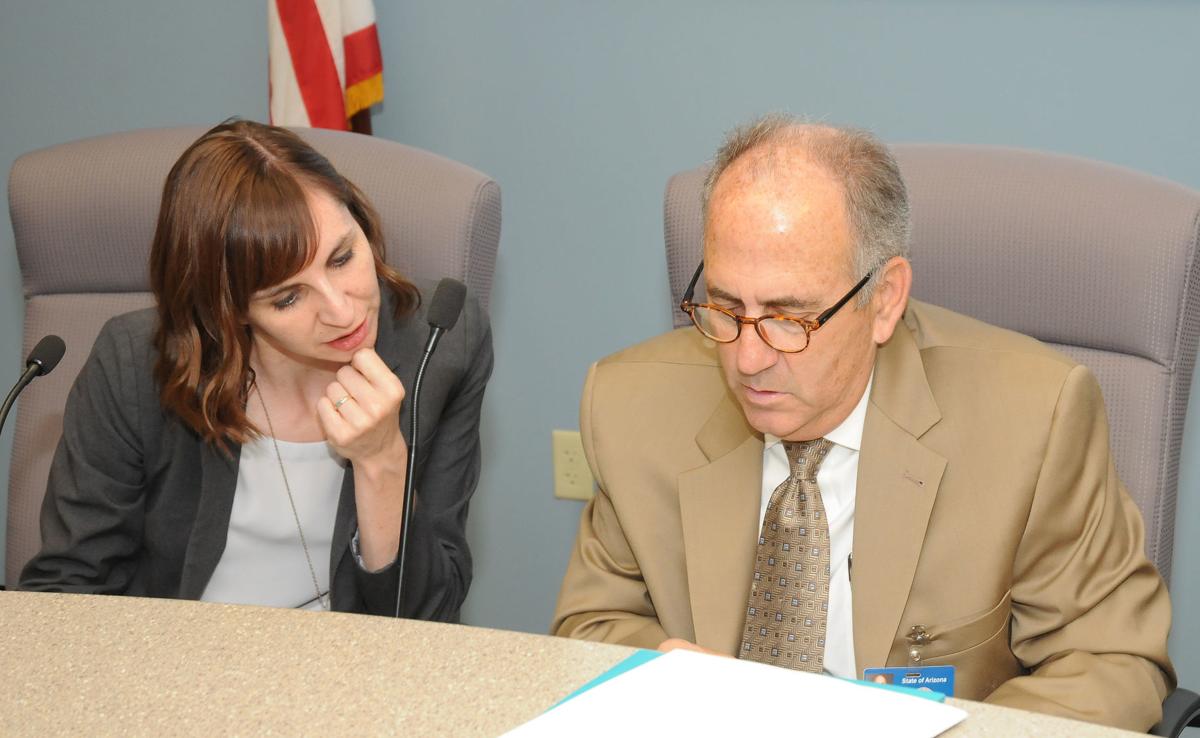Facing a lawsuit over its own rules, the state Board of Education voted unanimously Monday to repeal a requirement that sex-ed classes in Arizona “promote honor and respect for monogamous heterosexual marriage.”
The move followed a closed-door session of board members with their attorney, who advised them of their role as defendants in the lawsuit filed last month by gay-rights organizations on behalf of some Arizona students challenging what they said was an unconstitutional law that discriminates against gay students.
Officially the rule remains in place, at least for the time being. Monday’s action simply begins the legal process of revamping the rules, a process that requires a public hearing.
But Luke Narducci, the board president, said there already is a settlement between the state Board of Education and the challengers. Once the change is final, potentially as early as next month, the federal court lawsuit is expected to be dismissed.
The board’s action comes a month after it and Arizona schools chief Kathy Hoffman were sued over a statute that bans sex-ed courses that promote “a homosexual lifestyle” or portray “homosexuality as a positive alternative life-style” when teaching about AIDS and HIV.
The law also said that efforts to teach “safe sex” can never suggests there are safe methods of sex between people of the same gender.
State lawmakers voted to repeal the challenged language after Attorney General Mark Brnovich said he would not defend the statute. That, however, still left provisions in state board rules requiring promoting monogamous heterosexual language.
Monday’s vote sets the stage to make those rules go away.
But the board’s action leaves untouched some other provisions in the rules, including one that bars “teaching of abnormal, deviate, or unusual sexual acts and practices.”
That verbiage was not challenged. Attorney Peter Renn from Lambda Legal and Educational Foundation, one of the groups that sued, said that provision, at least on its face, is not unconstitutional.
“The lawsuit was tackling laws that, on their face, discriminated against students based on their sexual orientation,” he told Capitol Media Services.
By contrast, Renn said, the language here does not specifically mentioned gay people.
“It would be quite difficult to justify using that language to discriminate against gay students,” he said, citing a U.S. Supreme Court ruling which said states cannot penalize people based on “moral judgments of the majority.”
But Renn said groups like his will be watching to see if the provision ends up being used in a discriminatory fashion.
Hoffman, who also is a member of the board of education, said she sees no reason to seek repeal of that language, at least not now.
“Right now it makes sense for the board to stay focused on the issues brought forth by the lawsuit,” she said.“We want to make sure that we don’t overcomplicate it. Sometimes it’s best to take things one thing at a time.”
But Hoffman promised to “continue to reflect on that” as the board considers rule changes.
Nothing in state law requires schools to teach sex education. But districts that do must offer instruction that is grade-level appropriate, medically accurate, discourages drug abuse and dispels myths regarding the transmission of HIV, the virus linked to AIDS.
Programs also must “promote abstinence.”





